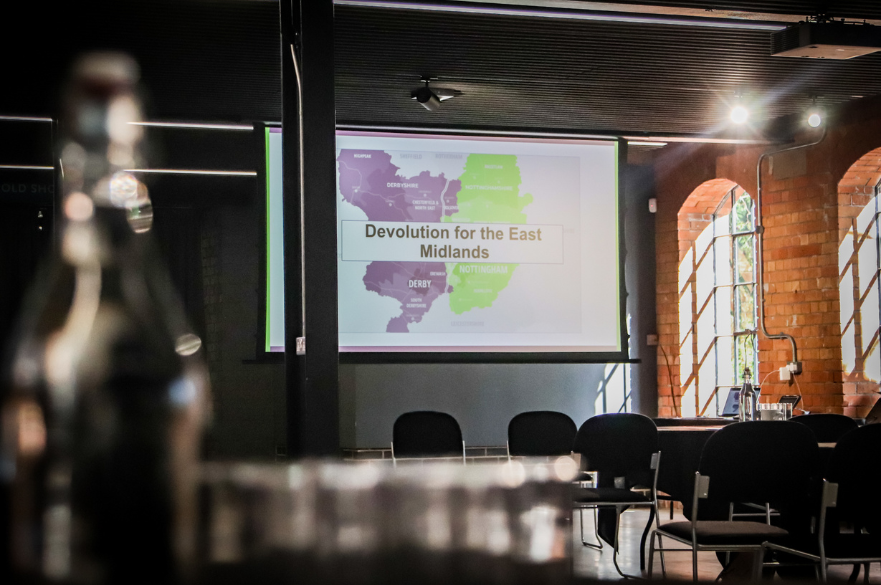County and city councils in the East Midlands have agreed to move forward with devolution plans for the region worth at least £1.14 billion.
Nottinghamshire County Council voted to go ahead with proposals for devolution at a meeting on Thursday 30 March. Derbyshire County Council, Derby City Council, and Nottingham City Council all agreed to proceed with the plans at meetings earlier in March.
Now the four councils have formally backed the plans, and agreed on a final version of the proposal, it means that new local powers and funding to improve the environment, skills training, transport, housing, and the economy could be in place as soon as next year.
For that to happen, new legislation is needed, so that a new form of Combined County Authority can be created. With new legislation in place, proposals for devolution could be sent to the Government for approval and Royal Assent, meaning that devolution in the East Midlands could be a reality from spring 2024, with the first ever election for a regional mayor, covering Derbyshire, Nottinghamshire, Derby, and Nottingham, taking place in May 2024.
Local leaders are backing devolution to promote economic growth, secure more investment in our area, for more and better jobs, and for better transport, skills training, housing, and an enhanced greener environment.
Historically, the East Midlands has often been an area of low Government funding, compared to many other areas of the UK. If the proposals for devolution go ahead, a guaranteed funding stream of £38 million a year for 30 years could help to reverse this trend.
The votes follow a public consultation which took place from November 2022 to January 2023. The consultation showed substantial support for the improvements that devolution would make possible. While slightly more disagreed than agreed with proposals for governance, with comments tending to centre around the regional mayor, having a regional mayor is a condition set by the Government for a level three deal, which offers the most powers and highest funding, which many respondents supported.
The mayor would lead the new combined authority, which would also include representatives from local councils, with decision making powers and resources moving from London to the East Midlands. Local businesses would also have a voice, as well as other organisations.
The devolution deal would not mean scrapping or merging local councils, which would all continue to exist as they do now and would still be responsible for most public services in the area. The mayor and combined authority would instead focus on wider issues like transport, regeneration, and employment across both cities and counties.
Millions in funding for local improvements in the East Midlands has already been approved by the Government. The funding which has been given the green light is part of an early investment offered to our area as part of devolution negotiations and is not dependent on devolution proposals going ahead.
